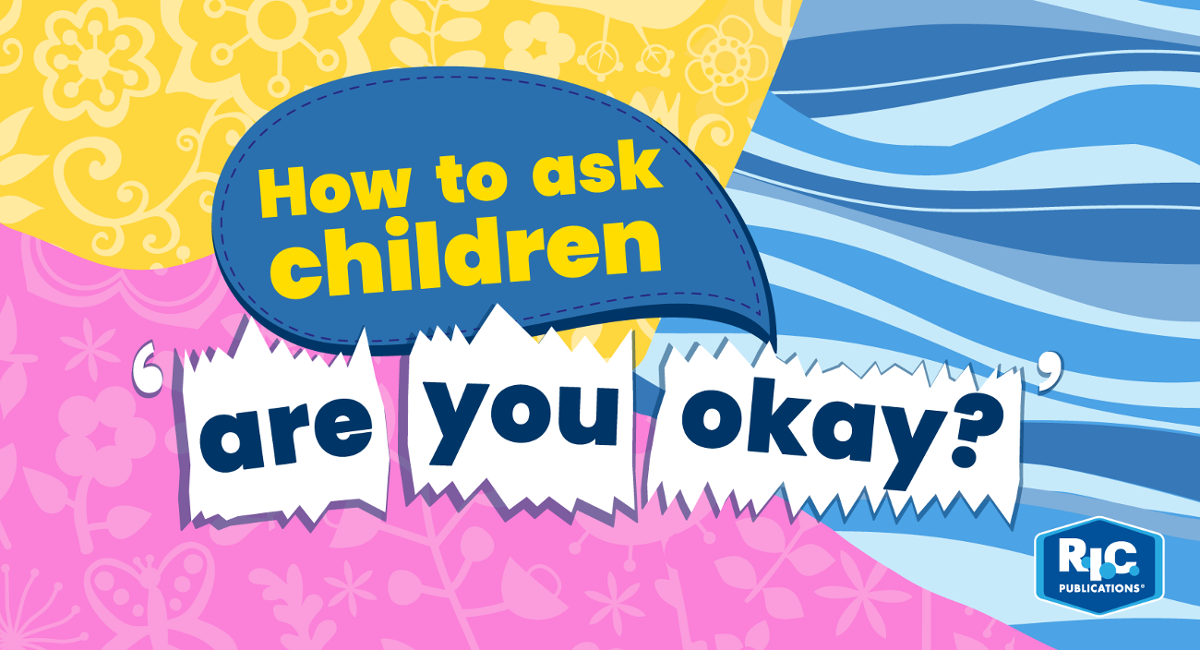- Wednesday 07 September 2022
- 0 Comments
'Schools play a major role in supporting young people with emotional and behavioural problems, and are often where symptoms of mental disorders are first identified.’ One of the most common mental disorders in school-aged children is anxiety (6.9%, the equivalent of 278,000 children).
According to the Australian Department of Health, the annual R U OK? Day aims to ‘promote awareness of mental health’ and to ‘encourage Australians to reach out to those at risk in their community’.
On the surface, this seems simple: just ask your child if they are okay. However, it takes effort to open the conversation, and to be genuine when doing so.
Before you ask a child ‘R U OK?’, it is necessary to recognise the signs of negative mental health in children. These signs can be (but are not limited to):
- being unusually quiet
- consistently handing homework or assignments in late (or not at all)
- antisocial or aggressive behaviour
- often being alone—usually most noticeable during break time
Once a child at risk of negative mental health has been identified, the R U OK? website highlights four steps to this conversation:
- Ask ‘R U OK?’
- Listen
- Encourage action
- Check in
We'd like to share some tips and ideas for how to adapt and implement these steps into a teacher–child dynamic, so that this conversation can flow with minimal mishaps that could further negatively impact the child.
Ask
Ensure that you open the conversation with the child because you genuinely care about them. If you’re asking ‘R U OK?’ for any other reason, the conversation will not flow or be helpful to the child.
Remember that you’re approaching the child from a position of authority. This may be awkward for them, and they may choose not to talk to you about their mental health. Do not force them to talk to you about it, but rather encourage them to talk to their parents, another family member or a friend. You may not be close enough to help them or encourage them to speak to a professional, and the important thing at this stage is that they talk to someone and don’t keep their mental health issues bottled inside them.
Listen
If the child does choose to talk to you, know that they are placing trust in you. Remember to listen carefully to what they say to you.
Pay attention to them. Don’t be distracted by other work or people. The child will be able to tell if your attention is elsewhere, and their trust in you will be broken. Paying attention to them shows the child that you genuinely care about them.
Don’t interrupt the child. Let them talk, and don’t try to censor their words as they’re speaking. However, asking questions will show the child that you’re interested in what they have to say and will encourage them to continue speaking to you.
If the child doesn’t answer a question immediately, simply remain silent. Chances are they are simply trying to decide how best to answer it. Let them gather their thoughts so that they can answer clearly and intentionally.
While waiting for a child to speak, remain gentle and approachable, not fidgeting, checking the time or becoming frustrated.
Encourage
Once a child has talked to you about their mental health situation, don’t immediately assume that they need your advice. Before giving advice, ask the child if they would like some. It may be that they simply needed someone to talk to, someone to listen to them.
If they would like some advice on how to deal with the situation, offer one or two suggestions most likely to be helpful for them. Don’t overwhelm them with too many suggestions, but tell them that they are welcome to come and talk to you anytime they would like more advice.
Remember
Remember what the child told you, and remember to check in with them another day. Ask them if they’ve followed your suggestions, if they’ve done anything else to help the situation, and if their mental health situation is improving.
The long-term conversation doesn’t end with ‘R U OK?’. Helping someone with their mental health takes work, effort and perseverance.
Their situation won’t magically fix itself completely after the child first talks to you, and once you’re involved, you will be in it for the long term.
Additionally, remember to ask ‘R U OK?’ throughout the rest of the year too, not just on R U OK? Day. To the individual child, it will appear more genuine if you’re asking on days when asking the question isn’t encouraged or expected from you.
Do you want more tips on how to help children manage their mental health and wellbeing? Our Mindfulness matters resource and activity pack is a thoughtful interactive designed to help children be present and to acknowledge their feelings in a calm manner. Want even more information? Have a look at our Developing mindfulness blog series for short, informative information and activities that are quick to employ in the classroom.
Related Posts:
- Developing Mindfulness: Being Present
- Developing Mindfulness: Decision-Making
- Developing Mindfulness: Mindful Listening
